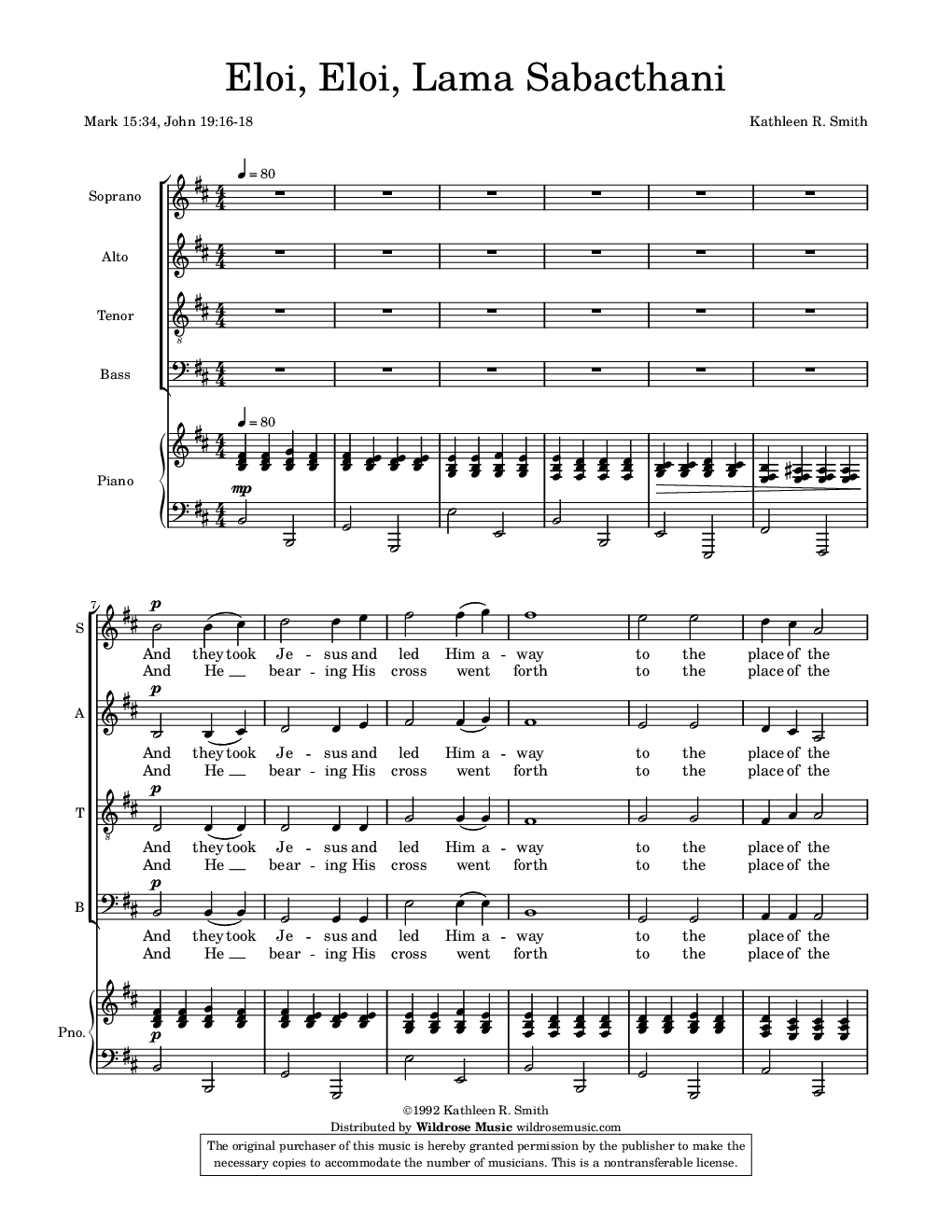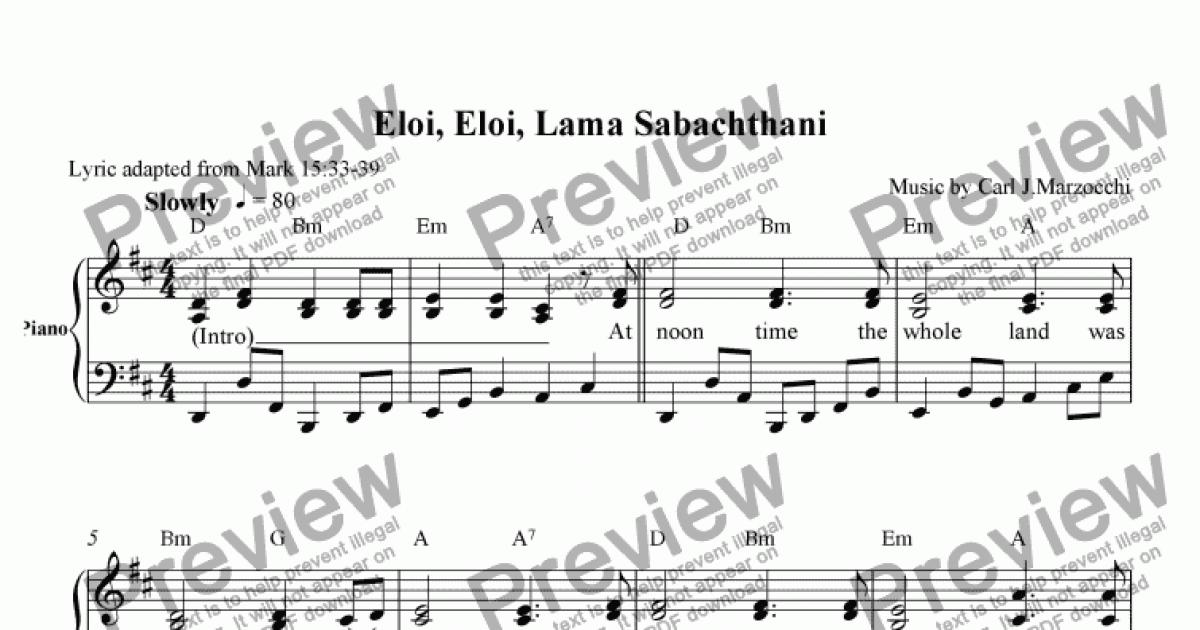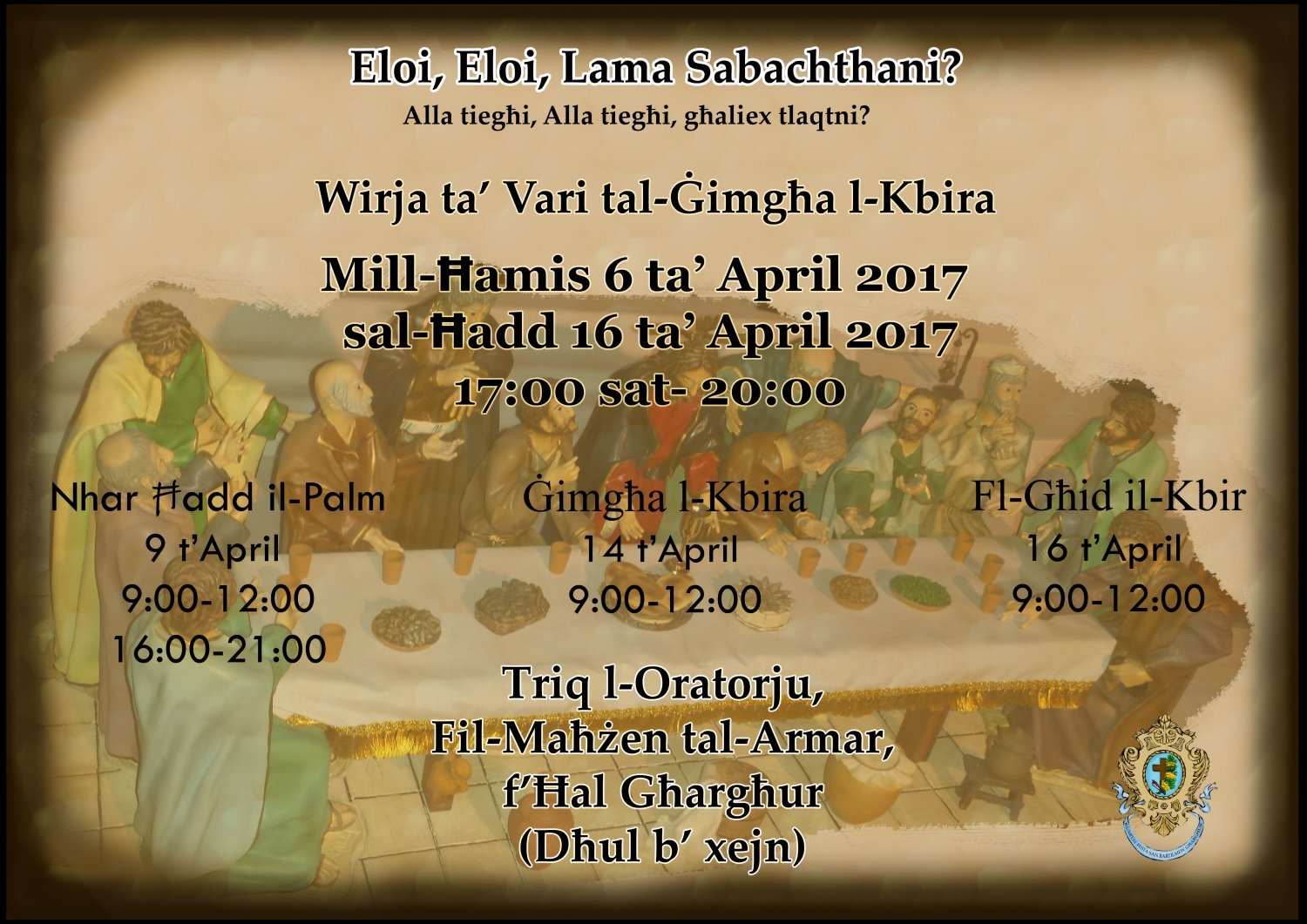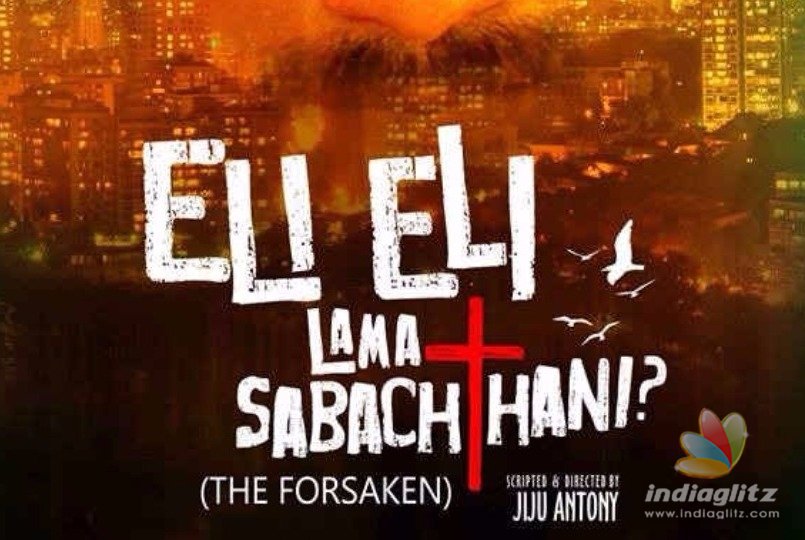
Eloi, Eloi, Lama Sabachthani Wildrose Music
It is curious that Matthew transliterated this into the Greek as the Hebrew Eli and Mark transliterated this as Aramaic Eloi. Lama is Hebrew, Lema is Aramaic and is shown as that in both Gospels in the Greek, but translators will render it as lama (Hebrew) for whatever reason.

Jesus Christ Eloi Eloi Lema Sabachthani Photograph by Acropolis De
Buy Now NIV, Lucado Encouraging Word Bible, Comfort Print: Holy Bible, New International Version Retail: $54.99 Our Price: $38.49 Save: $16.50 (30%) Buy Now And at three in the afternoon Jesus cried out in a loud voice, "Eloi, Eloi, lema sabachthani?" (which means "My God, my God, why have you forsaken

O AGUILHÃO DE DEUS Eli Eli Eli Lama Sabachthani? “Eli, Eli” ou “Eloí
Matthew 27:46: Around the ninth hour, Jesus shouted in a loud voice, saying "Eli, Eli, lema sabachthani?" which is, "My God, my God, why have you forsaken me?" Mark 15:34: And at the ninth hour, Jesus shouted in a loud voice, "Eloi, Eloi, lama sabachthani?" which is translated, "My God, my God, for what have you forsaken me?" Linguistic analysis

Eloi, Eloi, Lama Sabachthani Download Sheet Music PDF file
Smith's Bible Dictionary. Eli Eli Lama Sabachthani. The Hebrew form, as Eloi, Eloi, etc., is the Syro-Chaldaic (the common language in use by the Jews in the time of Christ) of the first words of the twenty-second Psalm; they mean " My God, my God, why hast thou forsaken me".

nutsilica Eloi, Eloi, lama sabachthani?
34 And at the ninth hour Jesus cried with a loud voice, saying, Eloi, Eloi, lama sabachthani? which is, being interpreted, My God, my God, why hast thou forsaken me? 35 And some of them that stood by, when they heard it, said, Behold, he calleth Elias.

'Eloi, Eloi, lama sabachthani?” 'My God, my God, why have you forsaken
According to a number of sites, including Wikipedia, the saying "Eli, Eli, lama sabachthani" (or in Mark's version "Eloi, Eloi, lama sabachthani") was originally Aramaic: אלהי אלהי למא שבקתני. Courtesy of Wikipedia However, according to some other sites it is Hebrew.

Eloi Eloi Lema Sabachthani Coming Soon Madhu Balakrishnan Baby
Mark 15:34 — New American Standard Bible: 1995 Update (NASB95) 34 At the ninth hour Jesus cried out with a loud voice, "Eloi, Eloi, lama sabachthani?" which is translated, "My God, My God, why have You forsaken Me?". And at three in the afternoon Jesus cried out in a loud voice, "Eloi, Eloi, lema sabachthani?" (which means "My.

Eloi, Eloi, Lama Sabachthani!? My Guide Malta
The forms lema and lama used in Matthew and Mark respectively (Westcott and Hort, The New Testament in Greek) represent the various possible forms, the first the Aramaic, and the second the Hebrew. The various readings and translations of the latter word, sabachthani, only add confusion to an effort at ultimate explanation of the real statement.

ARQUEOLOGIA E TEOLOGIA eli eli lama sabactani
Mark 15:34 — New American Standard Bible: 1995 Update (NASB95) 34 At the ninth hour Jesus cried out with a loud voice, "Eloi, Eloi, lama sabachthani?" which is translated, "My God, My God, why have You forsaken Me?". And at the ninth hour Jesus cried with a loud voice, "Eloi, Eloi, lema sabachthani?" which means, "My God, my God.

Eloi...Eloi Lama Sabakhtani james celosse (Passover Performance
Mark 15:34 Audio Crossref Comment Greek Verse (Click for Chapter) New International Version And at three in the afternoon Jesus cried out in a loud voice, "Eloi, Eloi, lema sabachthani?" (which means "My God, my God, why have you forsaken me?"). New Living Translation

“Eloi Eloi, lema sabachthani” Tonya LaLonde
The Death of Jesus (). 33 At noon, darkness came over the whole land until three in the afternoon. 34 And at three in the afternoon Jesus cried out in a loud voice, "Eloi, Eloi, lema sabachthani?" (which means "My God, my God, why have you forsaken me?")[] (35 When some of those standing near heard this, they said, "Listen, he's calling Elijah."

'Eloi, Eloi, Lama Sabachthani' by darkhorse4002 on DeviantArt
First, when Jesus cried out in a loud voice, 'Eloi, Eloi, lama sabachthani?' many assert that Jesus in His human nature, felt abandoned by God the Father. Jesus was God in the flesh. John 1:14 says, "The Word became flesh and dwelled among us." And in Phil 2:6-7, Paul says that Jesus, "although being in very nature God… was made in human likeness."

Eloi, Eloi lema Sabachthani The Soundtrack of Christ's Crucifixion
Vous permettre d'entrer en contact avec notre service de relation aux utilisateurs. Définition biblique de Eloï, lamma sabachtani : Cri de détresse et de désespoir, poussé par Jésus sur la croix qui signifie « Mon Dieu, mon Dieu, pourquoi m'as-tu abandonné ? ». Le cri de Jésus sur la croix nous montre la violence de son agonie.

How to pronounce Eloi Eloi Lama Sabachthani YouTube
Updated Apr 11, 2022 As Jesus was on the cross, around three o'clock, He cried, "Eloi Eloi Lama Sabachthani," which means "My God, my God, why have you forsaken me?" ( Matthew 27:46 ). Upon first glance, it can be confusing as to why Jesus would say these words. Why would Jesus say He was forsaken by God? 1. The Crucifixion

Eloi, Eloi Lema sabachthani Opiekun Dwutygodnik Diecezji Kaliskiej
. Int. Standard Bible Encyclopedia ELOI; ELOI; LAMA; SABACHTHA; ELI; ELI; LAMA SABACHTHANI. e'-loi, e-lo'i, la'-ma, sa-bakh-tha'-ni. /s/sabachtha.htm - 8k Sabachthani (2 Occurrences). Matthew 27:46; Mark 15:34). Int. Standard Bible Encyclopedia. ELOI; ELOI; LAMA; SABACHTHA; ELI; ELI; LAMA SABACHTHANI. e'-loi, e-lo'i, la.

'Eli Eli Lama Sabachthani' to display in the film fest Malayalam News
A Greater Understanding of What Jesus Meant. "About the ninth hour Jesus cried out in a loud voice, "Eloi, Eloi, lama sabachthani?'-which means, My God, my God, why have you forsaken me?" (Matthew 27:46) This phrase has often been misunderstood because it wasn't just a cry of agony. It was also a cry of victory….